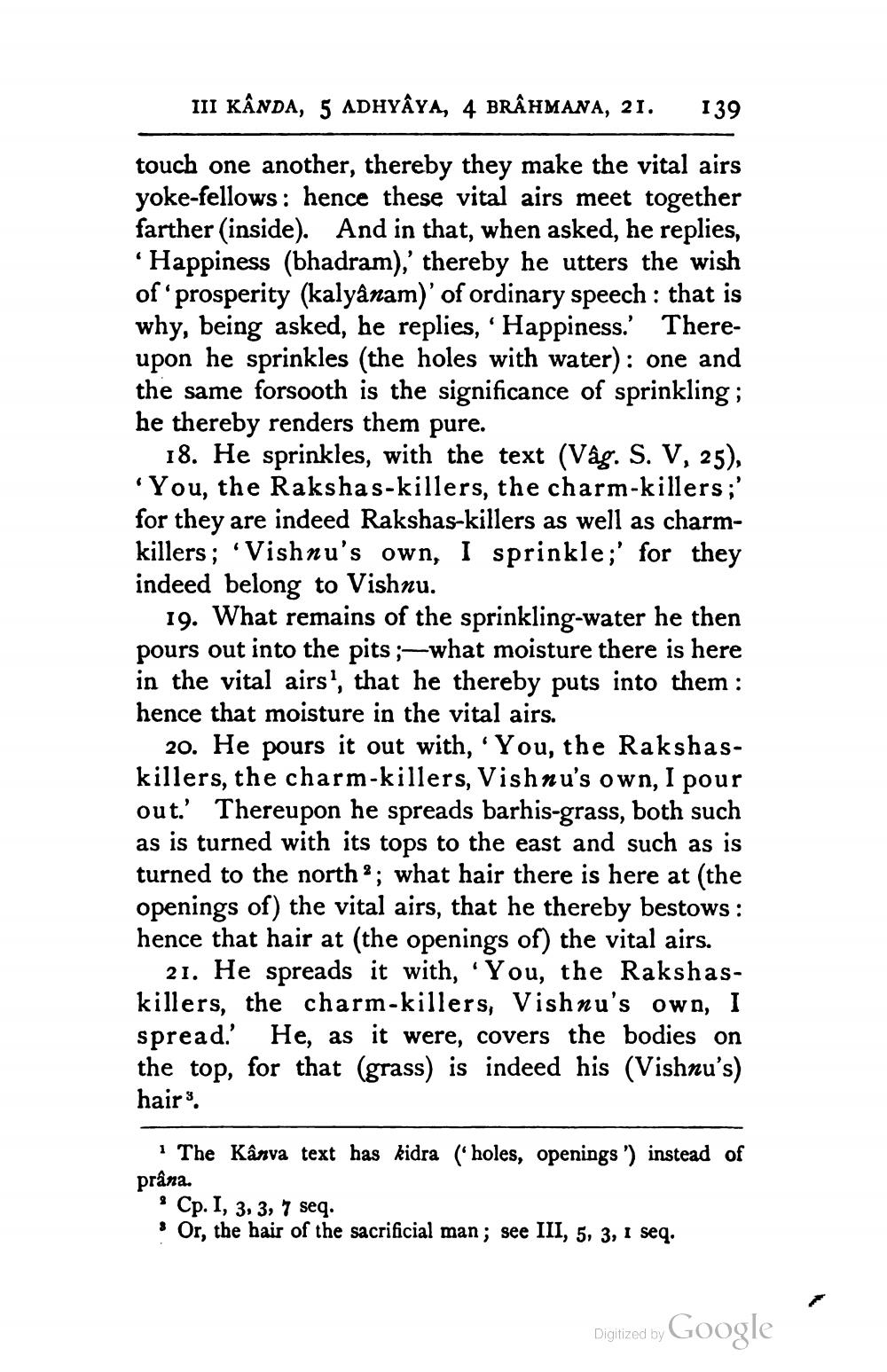________________
III KÂNDA, 5 ADHYAYA, 4 BRAHMANA, 21.
139
touch one another, thereby they make the vital airs yoke-fellows: hence these vital airs meet together farther (inside). And in that, when asked, he replies,
Happiness (bhadram),' thereby he utters the wish of prosperity (kalyanam)' of ordinary speech : that is why, being asked, he replies, ‘Happiness. Thereupon he sprinkles (the holes with water): one and the same forsooth is the significance of sprinkling; he thereby renders them pure.
18. He sprinkles, with the text (Vag. S. V, 25), You, the Rakshas-killers, the charm-killers;' for they are indeed Rakshas-killers as well as charmkillers ; 'Vishnu's own, I sprinkle;' for they indeed belong to Vishnu.
19. What remains of the sprinkling-water he then pours out into the pits ;-what moisture there is here in the vital airs?, that he thereby puts into them : hence that moisture in the vital airs.
20. He pours it out with, 'You, the Rakshaskillers, the charm-killers, Vishnu's own, I pour out.' Thereupon he spreads barhis-grass, both such as is turned with its tops to the east and such as is turned to the north ? ; what hair there is here at (the openings of) the vital airs, that he thereby bestows : hence that hair at (the openings of) the vital airs.
21. He spreads it with, You, the Rakshaskillers, the charm-killers, Vishnu's own, I spread.' He, as it were, covers the bodies on the top, for that (grass) is indeed his (Vishnu's) hairs.
· The Kârva text has kidra ("holes, openings ') instead of prâna.
Cp. I, 3, 3, 7 seq. * Or, the hair of the sacrificial man; see III, 5, 3, 1 seq.
Digitized by Google




